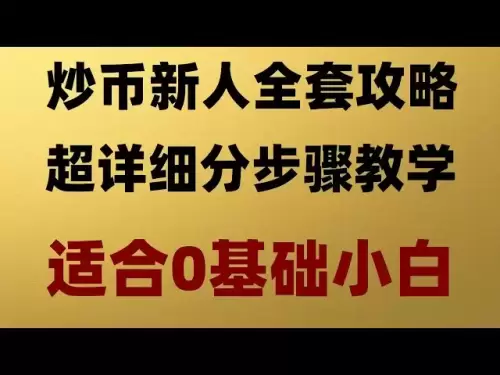-
 Bitcoin
Bitcoin $104,982.9346
0.26% -
 Ethereum
Ethereum $2,514.3001
0.18% -
 Tether USDt
Tether USDt $1.0003
0.00% -
 XRP
XRP $2.1522
1.36% -
 BNB
BNB $644.8232
0.68% -
 Solana
Solana $150.6857
5.65% -
 USDC
USDC $1.0000
-0.03% -
 Dogecoin
Dogecoin $0.1727
-2.00% -
 TRON
TRON $0.2724
0.68% -
 Cardano
Cardano $0.6257
1.36% -
 Hyperliquid
Hyperliquid $40.6341
3.86% -
 Sui
Sui $2.9884
4.20% -
 Bitcoin Cash
Bitcoin Cash $461.0418
9.07% -
 Chainlink
Chainlink $13.0800
0.54% -
 UNUS SED LEO
UNUS SED LEO $9.2666
2.20% -
 Avalanche
Avalanche $18.9054
0.27% -
 Stellar
Stellar $0.2553
0.51% -
 Toncoin
Toncoin $2.9571
0.90% -
 Shiba Inu
Shiba Inu $0.0...01189
-0.46% -
 Litecoin
Litecoin $85.4803
1.00% -
 Hedera
Hedera $0.1517
-0.28% -
 Polkadot
Polkadot $3.7638
0.69% -
 Ethena USDe
Ethena USDe $1.0000
-0.04% -
 Monero
Monero $311.7962
1.03% -
 Dai
Dai $0.9997
-0.02% -
 Bitget Token
Bitget Token $4.5104
0.14% -
 Pepe
Pepe $0.0...01090
1.17% -
 Pi
Pi $0.5984
0.12% -
 Uniswap
Uniswap $7.0368
-2.62% -
 Aave
Aave $269.8209
-1.28%
What should I do if the EMA golden cross encounters the previous pressure level?
The EMA golden cross near key resistance signals potential bullish momentum, but confirmation through price action and volume is crucial for reliable trading opportunities.
Jun 15, 2025 at 10:50 am
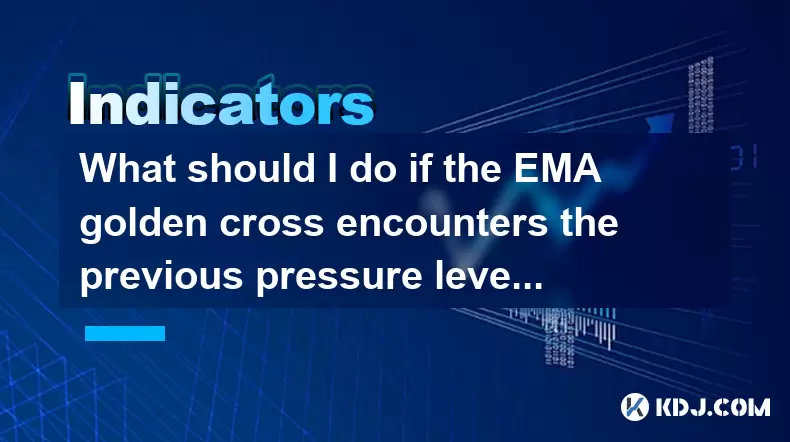
Understanding the EMA Golden Cross in Cryptocurrency Trading
The EMA (Exponential Moving Average) golden cross is a widely recognized technical indicator used by traders to identify potential bullish trends. It occurs when the short-term EMA (usually the 9-day or 50-day) crosses above the long-term EMA (typically the 200-day). This crossover often signals that an asset may be entering an uptrend, especially if accompanied by increased volume.
In the context of cryptocurrency trading, where volatility is high and momentum shifts rapidly, the golden cross can be a powerful tool. However, its reliability diminishes when it coincides with a significant previous resistance level, which may act as a new pressure point for price movement.
Important: Always combine the EMA golden cross with other technical indicators such as RSI, MACD, and volume analysis to confirm the strength of the signal.
Recognizing Previous Pressure Levels on a Chart
Before understanding how to react when the EMA golden cross meets a prior resistance zone, it's essential to know how to identify these levels accurately. A previous pressure level typically appears as a horizontal line where the price has previously struggled to break through multiple times.
These zones are crucial because they represent areas where sellers historically stepped in and pushed prices back down. In crypto markets, such levels often become psychological thresholds — especially around round numbers like $30,000 for Bitcoin or $2,000 for Ethereum.
To spot these levels:
- Look for repeated price rejections at a certain price point.
- Use horizontal support/resistance lines to mark these areas clearly.
- Combine with Fibonacci retracement levels for more precise entry and exit points.
Important: The stronger the historical rejection, the higher the likelihood that the level will continue to act as resistance during a rally.
Why the Confluence of EMA Golden Cross and Resistance Matters
When a golden cross aligns with a prior resistance level, it creates what traders call a "confluence zone." This means two potentially strong forces are at play — one bullish (the golden cross) and one bearish (resistance level).
This confluence often leads to high volatility, as bulls attempt to push the price higher while bears defend the key level. In crypto markets, this dynamic can lead to sharp spikes or breakdowns depending on whether the price successfully breaks through.
Here’s how to interpret the scenario:
- If the price breaks above the resistance after the golden cross, it could signal a strong continuation move.
- If the price fails to break and reverses, it might indicate a fakeout or a false breakout.
Important: Watch for candlestick patterns near the resistance level — such as engulfing candles or pin bars — to help determine market sentiment.
Trading Strategy When EMA Golden Cross Meets Resistance
When you encounter this situation in your chart analysis, consider the following step-by-step approach to manage risk and maximize opportunity:
- Identify the EMA crossover: Confirm that the short-term EMA has crossed above the long-term EMA on your preferred time frame (e.g., 1-hour, 4-hour, or daily).
- Locate the resistance level: Ensure it's a well-established area with multiple touches or rejections.
- Observe price action closely: Wait for confirmation of either a breakout or rejection at the resistance.
- Use limit orders strategically: Place buy orders slightly above the resistance if you expect a breakout, or sell orders below if you anticipate a rejection.
- Set stop-loss and take-profit levels: Protect yourself from sudden reversals by placing stops just beyond the resistance or moving average.
- Monitor volume and order flow: High volume during a breakout increases the probability of a sustained move.
Important: Avoid chasing entries immediately after the golden cross. Wait for confirmation at the resistance level to reduce false signals.
Risk Management Techniques During These Scenarios
Risk management becomes even more critical when dealing with confluence zones involving the EMA golden cross and resistance levels. Given the unpredictable nature of crypto markets, failing to protect your capital can lead to significant losses.
Consider implementing the following strategies:
- Position sizing: Allocate only a small percentage of your portfolio per trade to avoid overexposure.
- Trailing stops: Use trailing stop-loss orders to lock in profits as the price moves in your favor.
- Time-based exits: Set predefined time limits for holding positions if the expected breakout doesn't occur within a reasonable timeframe.
- Diversification across assets: Don’t put all your capital into one cryptocurrency showing this pattern.
- Backtesting: Test your strategy against historical data to understand how often this setup works under similar conditions.
Important: Emotional discipline is key — don’t override your plan based on fear or greed during volatile swings.
Frequently Asked Questions
Q: Can the EMA golden cross still be valid if it forms below a major resistance level?
A: Yes, but it requires careful observation. The golden cross may still indicate future strength, but until the price breaks above the resistance, the bullish signal remains incomplete.
Q: Should I ignore trades when the golden cross coincides with resistance?
A: Not necessarily. You can still trade the setup, but adjust your expectations and use tighter stop-loss orders to account for the uncertainty.
Q: How do I know if the resistance level is strong enough to matter?
A: Look at how many times the price was rejected from that level in the past. More touches generally indicate stronger resistance.
Q: Is the EMA golden cross reliable in lower time frames like 15-minute charts?
A: While it can appear frequently on lower time frames, it tends to generate more false signals. Higher time frames offer more reliable setups.
Disclaimer:info@kdj.com
The information provided is not trading advice. kdj.com does not assume any responsibility for any investments made based on the information provided in this article. Cryptocurrencies are highly volatile and it is highly recommended that you invest with caution after thorough research!
If you believe that the content used on this website infringes your copyright, please contact us immediately (info@kdj.com) and we will delete it promptly.
- Benjamin Kalu Tasks South East Geopolitical Zone Not to Engage in Second Fiddle Politics in 2027
- 2025-06-16 04:45:13
- Bitcoin (BTC) Price Flashes a Golden Cross Weekly Chart Setup Has Historically Preceded Explosive Rallies
- 2025-06-16 04:45:13
- Bitcoin, a Digital Titan Often Punctuated by Wild Swings and Relentless Headlines
- 2025-06-16 04:40:14
- Bitcoin (BTC) Price Surges to All-Time Highs, Trading at ₹80.3 Lakhs
- 2025-06-16 04:40:14
- El Salvador is showing once again that it is leading the way with Bitcoin — and this time, they’re starting with the next generation.
- 2025-06-16 04:35:13
- ALPACA Token Soared by 650% After Binance Delisting Announcement
- 2025-06-16 04:35:13
Related knowledge
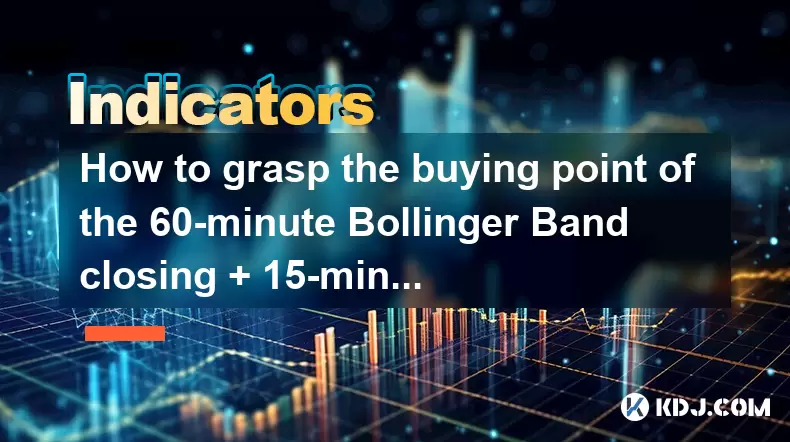
How to grasp the buying point of the 60-minute Bollinger Band closing + 15-minute MACD bottom divergence?
Jun 16,2025 at 12:03am
Understanding the Bollinger Band Closing Signal on a 60-Minute ChartThe Bollinger Band closing signal refers to a situation where the price closes outside the upper or lower band and then re-enters it in the subsequent candlestick. In this context, we focus on the lower Bollinger Band closing, which indicates a potential reversal from a downtrend. On th...
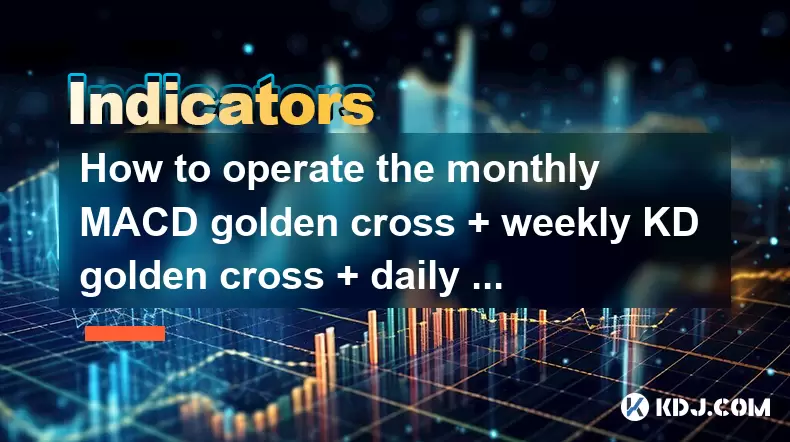
How to operate the monthly MACD golden cross + weekly KD golden cross + daily volume breakthrough?
Jun 15,2025 at 05:36am
Understanding the Strategy: Monthly MACD Golden CrossTo effectively operate the monthly MACD golden cross, traders must first understand what this signal entails. The MACD (Moving Average Convergence Divergence) golden cross occurs when the MACD line crosses above the signal line on a given chart timeframe. When this happens on the monthly chart, it sug...
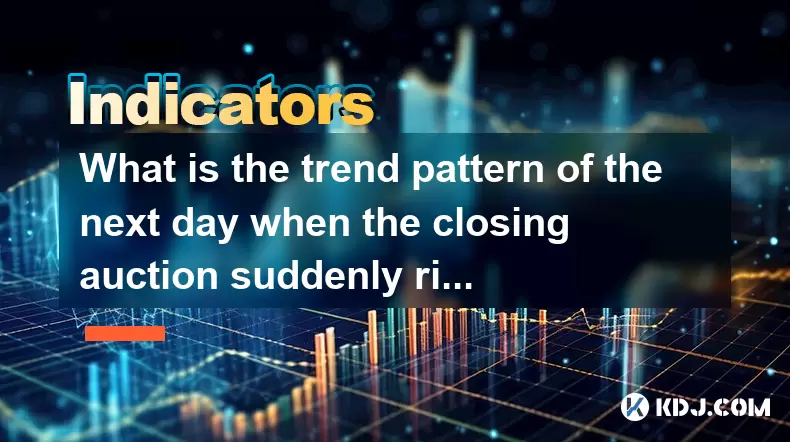
What is the trend pattern of the next day when the closing auction suddenly rises?
Jun 15,2025 at 08:15am
Understanding Closing Auctions in Cryptocurrency MarketsIn the context of cryptocurrency trading, a closing auction refers to a mechanism used by exchanges to determine the closing price of an asset at the end of a trading session. This process typically occurs within a short time window before the market closes for the day and aims to provide a fair an...

What does it mean when the volume fluctuates during the sideways trading at high levels?
Jun 15,2025 at 10:28am
Understanding Volume Fluctuations in Sideways TradingWhen volume fluctuates during sideways trading at high levels, it refers to the changes in the number of assets traded over a given period while the price remains relatively stable, moving within a defined range. This phenomenon typically occurs when the market lacks a clear directional bias—neither b...
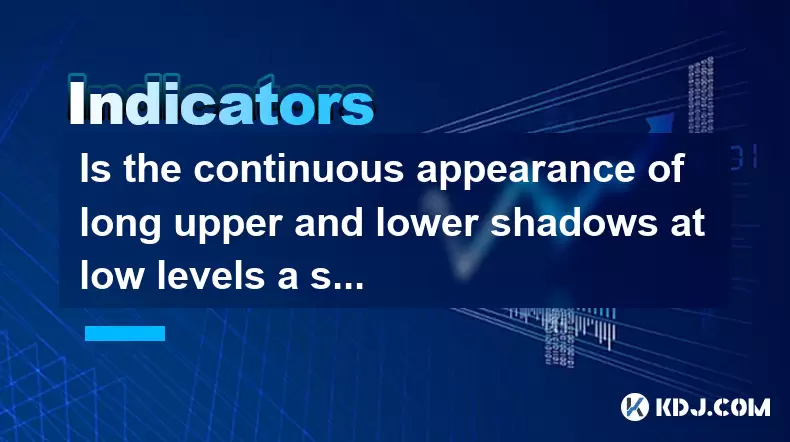
Is the continuous appearance of long upper and lower shadows at low levels a signal of accumulation?
Jun 15,2025 at 01:43am
Understanding Long Upper and Lower Shadows in Candlestick ChartsIn the world of cryptocurrency trading, candlestick patterns are widely used to analyze price movements. A long upper shadow, also known as a wick or tail, indicates that the price rose significantly during the period but was pushed back down by selling pressure. Conversely, a long lower sh...
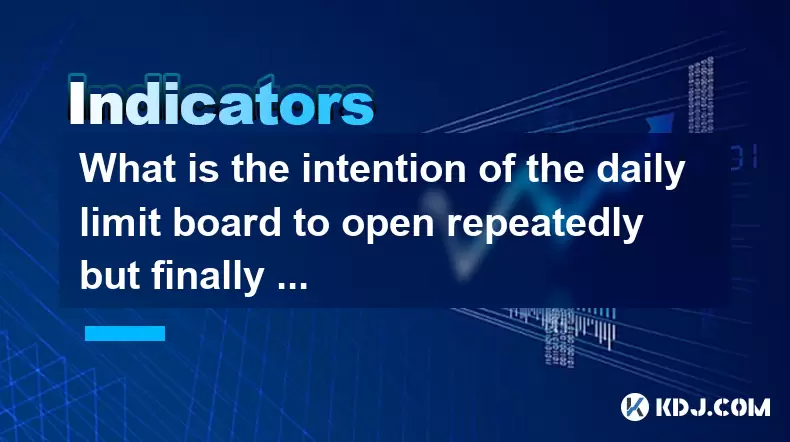
What is the intention of the daily limit board to open repeatedly but finally close?
Jun 15,2025 at 01:08am
Understanding the Daily Limit Board in Cryptocurrency TradingIn cryptocurrency trading, a daily limit board refers to a price movement restriction mechanism applied by certain exchanges or regulatory bodies. This mechanism is primarily used to prevent extreme volatility and panic selling or buying during periods of intense market fluctuation. When an as...

How to grasp the buying point of the 60-minute Bollinger Band closing + 15-minute MACD bottom divergence?
Jun 16,2025 at 12:03am
Understanding the Bollinger Band Closing Signal on a 60-Minute ChartThe Bollinger Band closing signal refers to a situation where the price closes outside the upper or lower band and then re-enters it in the subsequent candlestick. In this context, we focus on the lower Bollinger Band closing, which indicates a potential reversal from a downtrend. On th...

How to operate the monthly MACD golden cross + weekly KD golden cross + daily volume breakthrough?
Jun 15,2025 at 05:36am
Understanding the Strategy: Monthly MACD Golden CrossTo effectively operate the monthly MACD golden cross, traders must first understand what this signal entails. The MACD (Moving Average Convergence Divergence) golden cross occurs when the MACD line crosses above the signal line on a given chart timeframe. When this happens on the monthly chart, it sug...

What is the trend pattern of the next day when the closing auction suddenly rises?
Jun 15,2025 at 08:15am
Understanding Closing Auctions in Cryptocurrency MarketsIn the context of cryptocurrency trading, a closing auction refers to a mechanism used by exchanges to determine the closing price of an asset at the end of a trading session. This process typically occurs within a short time window before the market closes for the day and aims to provide a fair an...

What does it mean when the volume fluctuates during the sideways trading at high levels?
Jun 15,2025 at 10:28am
Understanding Volume Fluctuations in Sideways TradingWhen volume fluctuates during sideways trading at high levels, it refers to the changes in the number of assets traded over a given period while the price remains relatively stable, moving within a defined range. This phenomenon typically occurs when the market lacks a clear directional bias—neither b...

Is the continuous appearance of long upper and lower shadows at low levels a signal of accumulation?
Jun 15,2025 at 01:43am
Understanding Long Upper and Lower Shadows in Candlestick ChartsIn the world of cryptocurrency trading, candlestick patterns are widely used to analyze price movements. A long upper shadow, also known as a wick or tail, indicates that the price rose significantly during the period but was pushed back down by selling pressure. Conversely, a long lower sh...

What is the intention of the daily limit board to open repeatedly but finally close?
Jun 15,2025 at 01:08am
Understanding the Daily Limit Board in Cryptocurrency TradingIn cryptocurrency trading, a daily limit board refers to a price movement restriction mechanism applied by certain exchanges or regulatory bodies. This mechanism is primarily used to prevent extreme volatility and panic selling or buying during periods of intense market fluctuation. When an as...
See all articles





















